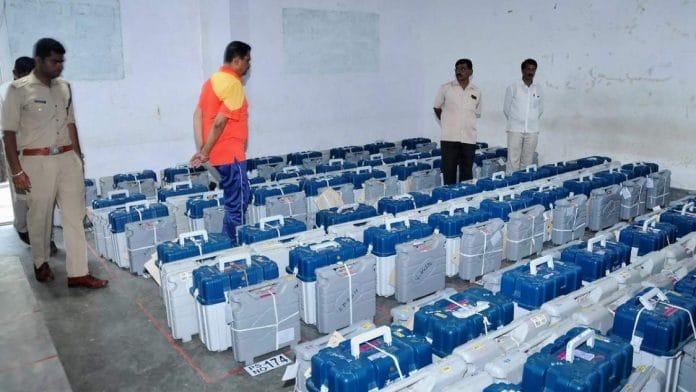New Delhi: A group of retired civil servants has written a scathing letter to the Election Commission of India (EC), calling the recently-concluded Lok Sabha elections “one of the least free and fair elections that the country has had in the past three decades”.
The letter, which has been signed by 64 former civil servants and over 80 academics and veteran military personnel, stated: “So blatant have been the acts of omission and commission by the Election Commission of India that even former Election Commissioners and CECs have been compelled, albeit reluctantly, to question the decisions of their successors in office.”
Action not taken against BJP leaders & PM Modi
The letter expressed reservations about the EC allegedly turning a blind eye to complaints of hate speeches and Model Code of Conduct violations, especially by BJP leaders. The EC, the letter alleged, “blithely” ignored the “hate speeches and communally loaded statements by candidates, primarily of the BJP”, saying that it “had no power to take action”.
The civil servants and others questioned the lack of a show-cause notice to Prime Minister Narendra Modi, even though the PM flouted EC guidelines prohibiting the invocation of the armed forces in the election campaign. They alleged that the PM “misused” the Pulwama and Balakot incidents several times in order to gain political mileage by stirring up “nationalistic, or more correctly, jingoistic fervour and channel it in favour of the BJP”.
The letter also mentioned the suspension of Karnataka cadre IAS officer Mohammed Mohsin, who had sought to check PM Modi’s helicopter, and called it evidence of the EC’s “bias”.
Another issue raised in the letter was the controversial NaMo TV, which appeared on cable networks without the requisite licences and permissions from the government. The channel “strangely operated without obtaining permission from the Information and Broadcasting Ministry to go on air”, and even failed to comply with “the many regulations necessary to start a new channel,” the letter stated.
Electoral rolls and EVMs
The group further spoke about the alleged infallibility of the electoral rolls by arguing that several people found their names missing from the rolls.
“Several reports were published in the media of large-scale voter exclusion, with some reports suggesting that voters from a certain minority group were the most affected. It was incumbent upon the EC to investigate them and respond promptly,” the group said.
Drawing the EC’s attention on to the issue of electronic voting machines, they said: “People’s confidence in EVMs would have been greater if the EC had been more cooperative about using the Voter Verifiable Paper Audit Trails (VVPATs) in a manner that would confirm the results of the EVMs, but from the beginning the EC was reluctant to match the number of votes recorded in EVMs with the votes in the VVPAT machines.”
Further, the letter stated that “between the last day of polling and the counting day, there were several reports of unexplained movement of EVMs to and from the strong rooms in various states. These movements have not been satisfactorily explained, and the EC’s bland denial does not inspire trust or confidence.”
Who are the signatories?
The signatories are part of a collective called the Constitutional Conduct Group, which often comes together to voice its concerns regarding socio-political developments in the country.
It includes former civil servants like S.P. Ambrose, Mohinderpal Aulakh, G. Balachandran, Vappala Balachandran, Gopalan Balagopal, Chandrashekhar Balakrishnan, Jawhar Sircar, Parveen Talha, P.S.S. Thomas, Pradip Bhattacharya, Wajahat Habibullah, Sajjad Hassan, Arun Kumar and Subodh Lal.
The academics include Nivedita Menon, Sumit Sarkar, Ira Bhaskar, Dilip Simeon, Ayesha Kidwai and Nandita Narain.
Veterans from the armed forces include Admiral L. Ramdas, Admiral Vishnu Bhagwat, Lt Gen. M.A. Zaki and Major Gen T.K. Kaul.
Also read: 2019 Lok Sabha polls couldn’t have been fairer as far as Election Commission is concerned






